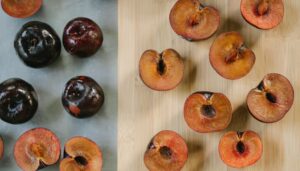A plant-based diet is a dietary approach that emphasizes the consumption of foods derived from plants, including vegetables, fruits, nuts, seeds, oils, whole grains, legumes, and beans. This type of diet has gained popularity due to its numerous health benefits, environmental impact, and ethical considerations. As more people become aware of the advantages of a plant-based diet, it is essential to understand its benefits, challenges, and how to effectively transition to this lifestyle.
Types and Categories
Vegetarian Diet
Lacto-Vegetarian
A lacto-vegetarian diet includes dairy products but excludes meat, fish, poultry, and eggs.
Ovo-Vegetarian
An ovo-vegetarian diet includes eggs but excludes meat, fish, poultry, and dairy products.
Lacto-Ovo Vegetarian
A lacto-ovo vegetarian diet includes both dairy products and eggs but excludes meat, fish, and poultry.
Vegan Diet
A vegan diet excludes all animal products, including meat, fish, poultry, dairy, and eggs.
Flexitarian Diet
A flexitarian diet is primarily plant-based but allows occasional consumption of meat and other animal products.
Whole-Food, Plant-Based Diet
A whole-food, plant-based diet focuses on minimally processed plant foods and excludes refined foods, added sugars, and oils.

Benefits of Plant-Based Diets
Health Benefits
Weight Management
A plant-based diet can help with weight management due to its high fiber content and low calorie density. Foods such as fruits, vegetables, and whole grains are nutrient-dense and can help you feel full longer, reducing overall calorie intake.
Reduced Risk of Chronic Diseases
Studies have shown that plant-based diets are associated with a lower risk of chronic diseases such as heart disease, diabetes, and certain cancers. The high fiber, vitamin, and antioxidant content in plant foods contribute to these protective effects.
Improved Digestive Health
The high fiber content in plant-based diets promotes healthy digestion and can help prevent constipation, bloating, and other digestive issues.
Enhanced Nutrient Intake
Plant-based diets can provide a wide range of essential nutrients, including vitamins, minerals, and antioxidants, which are crucial for maintaining overall health.
Environmental Benefits
Reduced Carbon Footprint
Plant-based diets have a lower carbon footprint compared to diets that include a high amount of animal products. Livestock production is a significant contributor to greenhouse gas emissions, and reducing meat consumption can help mitigate climate change.
Conservation of Water Resources
Animal agriculture requires substantial water resources. By adopting a plant-based diet, individuals can help conserve water and reduce the strain on this vital resource.
Preservation of Ecosystems
Reducing meat consumption can also help preserve ecosystems and biodiversity by decreasing the demand for livestock farming, which often leads to deforestation and habitat destruction.

Challenges of Plant-Based Diets
Nutritional Deficiencies
Protein
One of the common concerns with plant-based diets is obtaining enough protein. However, there are many plant-based protein sources such as legumes, tofu, tempeh, and quinoa that can meet protein needs.
Vitamin B12
Vitamin B12 is naturally found in animal products, and its deficiency can be a concern for those on a strict plant-based diet. Supplementation or fortified foods are essential to ensure adequate intake.
Iron
Iron from plant sources is less bioavailable than from animal sources. Consuming iron-rich plant foods like lentils, spinach, and fortified cereals, along with vitamin C to enhance absorption, can help meet iron needs.
Omega-3 Fatty Acids
Omega-3 fatty acids are crucial for heart and brain health. Plant-based sources include flaxseeds, chia seeds, and walnuts, but some individuals may need to consider algae-based supplements.
Social and Cultural Barriers
Social Events and Dining Out
Navigating social events and dining out can be challenging for those on a plant-based diet. It often requires planning and sometimes bringing your own food to ensure there are suitable options available.
Cultural Dietary Practices
Cultural practices and traditional diets can pose challenges when transitioning to a plant-based diet. It requires finding plant-based alternatives that fit within cultural preferences.
Accessibility and Cost
Availability of Plant-Based Products
In some areas, access to a wide variety of plant-based products can be limited. Shopping at local markets and finding reliable sources for plant-based foods is essential.
Cost Comparison with Animal-Based Products
While some plant-based foods can be cost-effective, specialty products and organic options may be more expensive. Budgeting and planning can help manage costs.
How to Get Started with a Plant-Based Diet
Gradual Transition Tips
Start by incorporating more plant-based meals into your diet gradually. Replace animal products with plant-based alternatives one meal at a time to make the transition smoother.
Meal Planning and Preparation
Weekly Meal Plans
Plan your meals for the week to ensure a balanced and varied diet. Include a mix of fruits, vegetables, whole grains, legumes, nuts, and seeds.
Batch Cooking
Prepare large batches of meals to save time and ensure you always have healthy options available. Batch cooking can also help reduce food waste.
Plant-Based Recipe Ideas
Explore plant-based recipes and experiment with different cuisines to keep your meals interesting and enjoyable.
Shopping Tips
Reading Labels
Learn to read labels to identify plant-based products and avoid hidden animal ingredients.
Buying in Bulk
Buying staples like grains, legumes, and nuts in bulk can be more cost-effective and reduce packaging waste.
Finding Support
Online Communities
Join online communities and forums where you can connect with others following a plant-based diet for support, advice, and recipe ideas.
Local Groups and Events
Look for local groups and events focused on plant-based living. Participating in these can provide a sense of community and additional resources.
Symptoms and Signs of Nutritional Deficiencies
Signs of Protein Deficiency
Common signs include muscle weakness, fatigue, and hair loss. Ensuring a variety of plant-based protein sources can help prevent this.
Signs of Vitamin B12 Deficiency
Symptoms include fatigue, weakness, and neurological issues. Regular intake of fortified foods or supplements is crucial.
Signs of Iron Deficiency
Symptoms include fatigue, weakness, and pale skin. Combining iron-rich plant foods with vitamin C can enhance absorption.
Signs of Omega-3 Fatty Acid Deficiency
Symptoms include dry skin, fatigue, and poor concentration. Including plant-based omega-3 sources or supplements can help.
